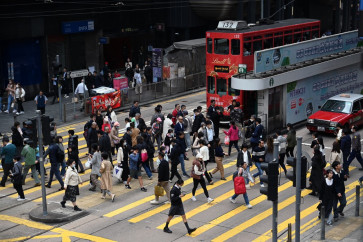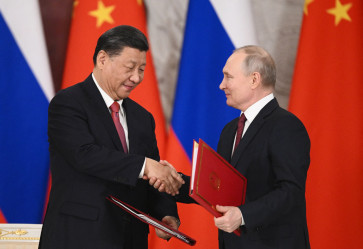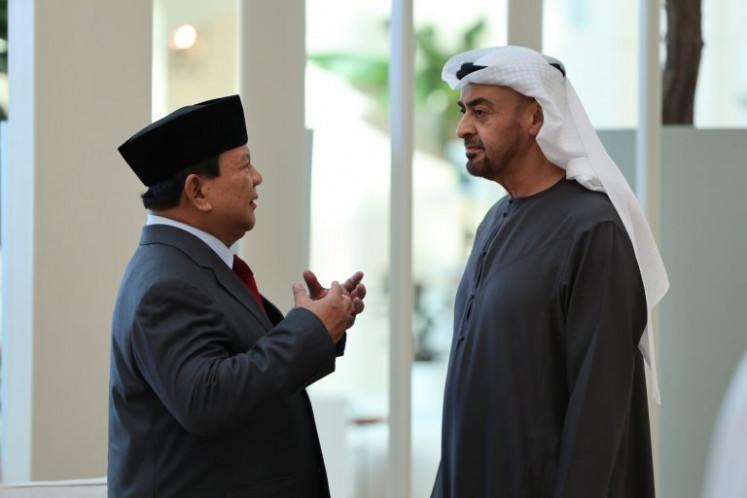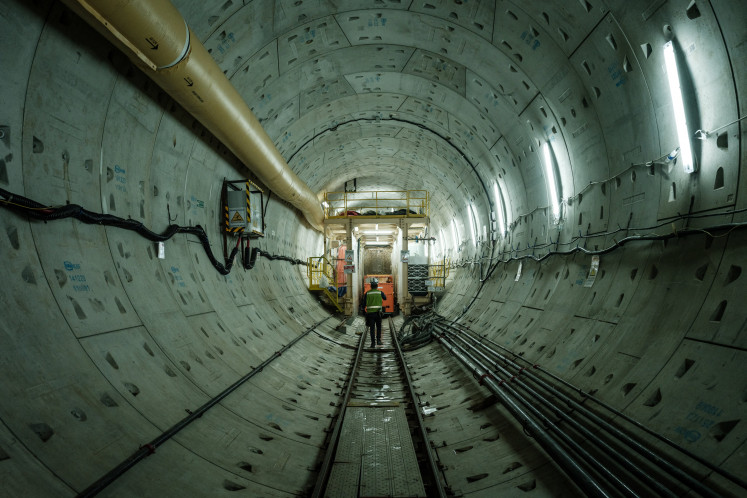Issue of the day: Alternative energy, not a subsidy cut
Feb
Change Size

F
strong>Feb. 16, p4
Finally, President Joko 'Jokowi' Widodo has left domestic fuel prices to international market dynamics after the previous administration ' considering political stability, economic capacity and social acceptability ' set fuel subsidies as high as possible. To carry out development, every strong nation must endeavor to attain energy security for both public consumption and national fuel industries.
However, the Indonesian government seems to lack sustainable strategies for achieving energy security. (By Lim Mei Ming, Bandung)
Your comments:
If only people shared the same thoughts as the writer. My boss planned to install solar panels to power electricity at his house.
At first, he was very enthusiastic, but once he made the investment calculation, he decided to put his investment in a bank account, which then generated interest that he used to pay state-owned company PLN, with some left over.
Green energy is very idealistic, but it's all about the money at the end of the day.
H. Cahyadi
'It's impossible, for example, to let the prices of public goods and services, including public transportation fees, go up and down in accordance with world fuel-price fluctuations.'
The author says that. Why? Most of the world has unregulated fuel prices. Ironically, many countries impose high taxes on fuel. As a result, changes in fuel prices are less noticed.
The point is no country can shield itself from energy markets.
Someone has to pay the bill ' either the consumer or all tax payers together. The only exceptions are maybe the few oil exporting countries (which Indonesia isn't) and even those incur opportunity costs. I prefer those consuming the energy to pay the bill. It provides an incentive to act efficiently and prevents me from having to cope with wrecked infrastructure because the money is going to someone air conditioning his garden or driving a Humvee or using a truck that hasn't been maintained for a decade.
Regarding inflation, subsidies don't stop that. Inflation is also caused by a currency decline, which again is hugely impacted by wasteful fuel imports and inefficient state budgets.
Besides, inflation caused by fuel hikes here is grossly exaggerated and used as an excuse.
There is no reason for nasi goreng (fried rice) going up by 20 percent just because fuel is up 20 percent.
Fuel is only a tiny portion of products' real cost.
Because of subsidized energy, it is not feasible to install renewable alternatives that do not receive the same subsidy.
Even in areas where power is generated from diesel and costs around US$30 per kilowatt hour to generate, PLN is still reluctant to install solar panels that would reduce diesel consumption by 20-50 percent, because for diesel they get tax money but for solar panels there is no similar mechanism.
Kantisini
Given PLN is owned by the government, it would be relatively easy and in its interest to assist customers to install solar panels to take the load off the network during
the day.
A feed in tariff has been used in other countries to achieve solar uptake by allowing customers to sell excess power back to the network.
If PLN is operating on the expectation of a continued diesel fuel subsidy then the answer is obvious, remove that expectation by signaling that the subsidy will be phased out and support for alternatives phased in.
Alternatively, put a price on carbon dioxide emissions.
John Elliott
Before marching down the road to follow other countries in developing renewable energy sources, I think that we first need to seriously evaluate the total energy usage/consumption of the country.
Such an evaluation can not only be used to analyze how bad our energy consumption is (see how terrible energy consumption in our messy mass transportation system is for example) but it can also be used to project how much effort should be given to developing those renewable energy sources, because even if we can generate and utilize these renewable energy sources later on, it still won't last long if we don't use it wisely and efficiently.
IB Ya
I am no expert in power generation, but it seems livable power needs vs what we have now is a figure near that ballpark.
Only the ballpark is a few kilometers away.
Most parts of the world cry out for never-ending fuel. Indonesia is not the only one ignoring the trend. It's never bad to start late, before it's lights out for everyone.
Dinero









